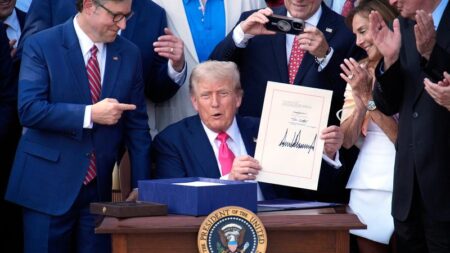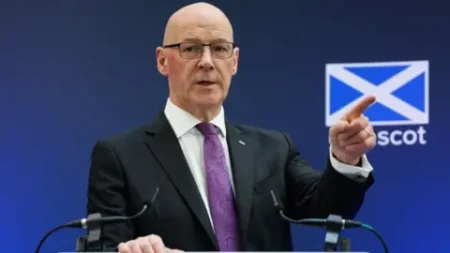The interim leader of Warwickshire County Council, George Finch, has proposed a plan that would allocate up to £190,000 annually to employ political assistants. This initiative is aimed at addressing perceived deficiencies within the council’s current staff, particularly in the realm of innovation and problem-solving. The proposal suggests hiring one assistant for each of the three major parties represented in the council: Reform UK, the Liberal Democrats, and the Conservatives.
George Finch, who currently leads Reform UK as a minority administration, has articulated that the existing council team has not been effective in generating the creative solutions necessary to tackle critical issues facing Warwickshire. Finch’s approach emphasizes that fresh insights and strategies are required amidst the challenges that the council faces. He argues that political assistants could provide the needed support for effective governance by contributing research and administrative aid specifically tailored to the needs of their respective political groups.
However, this proposal has faced significant backlash from opposition parties. The Liberal Democrats, Labour, and the Green Party have all expressed their discontent with the idea of investing in political assistants, suggesting that the funds would be better allocated to frontline services which directly benefit the community. In particular, Jerry Roodhouse, the leader of the Liberal Democrats, emphasized the necessity of directing financial resources toward essential services instead of political positions that may not yield immediate value to the public.
The context of this proposal is bolstered by national regulations that permit councils to hire up to three political assistants as long as each party holds a minimum of 10% of the available seats. These assistants are intended to support political groups in their council functions, performing tasks such as research and outreach. However, the opposition critiques highlight the fear that this type of expenditure could exacerbate financial strains within the council, especially in light of ongoing budget cuts.
Finch’s upcoming presentation of the proposal at a full council meeting is highly anticipated, as it will also coincide with a vote on his potential confirmation as the council’s leader. If successful, Finch would represent one of the youngest council leaders in the UK, overseeing an extensive budget of around £500 million and managing council assets valued at £1.5 billion.
Two weeks prior, the cabinet of Reform UK had unanimously agreed to principles outlined in the council’s medium-term financial plan, which included a commitment to carefully scrutinize new financial allocations. Finch has indicated that the decision to hire political assistants stems from a long-standing approach wherein the council has leaned heavily on its corporate policy team. He criticized this reliance, citing a lack of innovative progress, stating that a “fresh, bold approach” is required to facilitate necessary policy transformations.
The opposition has responded to these assertions with skepticism. Roodhouse contended that the funds earmarked for political assistants would be better spent on community-oriented services, and Green Party leader Jonathan Chilvers expressed astonishment at the apparent contradiction of Finch’s proposals against their campaign commitments to reduce ‘wasteful’ spending.
Labour group leader Sarah Feeney also reinforced this sentiment by highlighting the pressing need to address severe cuts to essential services, arguing that the council’s focus should be on urgent community needs rather than political staffing. Meanwhile, the Conservative group reported that it is still deliberating on Finch’s proposal.
This discourse illuminates the broader challenges local governments face, particularly balancing financial prudence with the need for effective political support and innovative governance. With council meetings scrutinized for transparency and accountability, the outcome of Finch’s proposals could significantly influence the future direction of Warwickshire County Council. The opposition’s critiques suggest a contentious road ahead as the council navigates these complexities.










